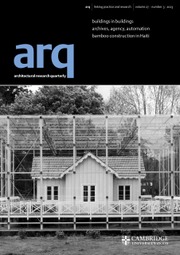No CrossRef data available.
Article contents
‘Sybaris is the land where it wishes to take us’: luxurious insertions in Picturesque gardens
Published online by Cambridge University Press: 07 November 2011
Extract
Towards the end of the eighteenth century, the discovery of Pompeii attracted European aristocrats to include the Kingdom of the Two Sicilies (Southern Italy) on their Grand Tour itinerary. Similarly, Sybaris, an ancient Greek colonial polis also directed aristocratic attention to the region. French painter and engraver Jean-Claude Richard de Saint-Non and his entourage of architects most famously documented the ruinous Sybaris and exported its imagery back to France. In parallel with these developments, interest in recreating sybaritic images within luxurious Picturesque gardens arose. Drawing upon a pair of garden case studies, Monsieur de Monville's Broken Column House (1780–81) at Désert de Retz, Chambourcy, and Queen Marie-Antoinette's hameau (1783) within the Petit Trianon Gardens at Versailles, this paper examines the sybaritic images, their influences and the ethical values of the creators of these gardens. Monville and Marie-Antoinette were, for instance, charged of excess. This paper is concerned with the way in which these sybaritic places were configured and how they encapsulated a mythic Sybaris, and argues that the charges of excess levelled against their creators partly stemmed from the unusual and sybaritic effects to be found at their private entertainment gardens.
- Type
- history
- Information
- Copyright
- Copyright © Cambridge University Press 2011


